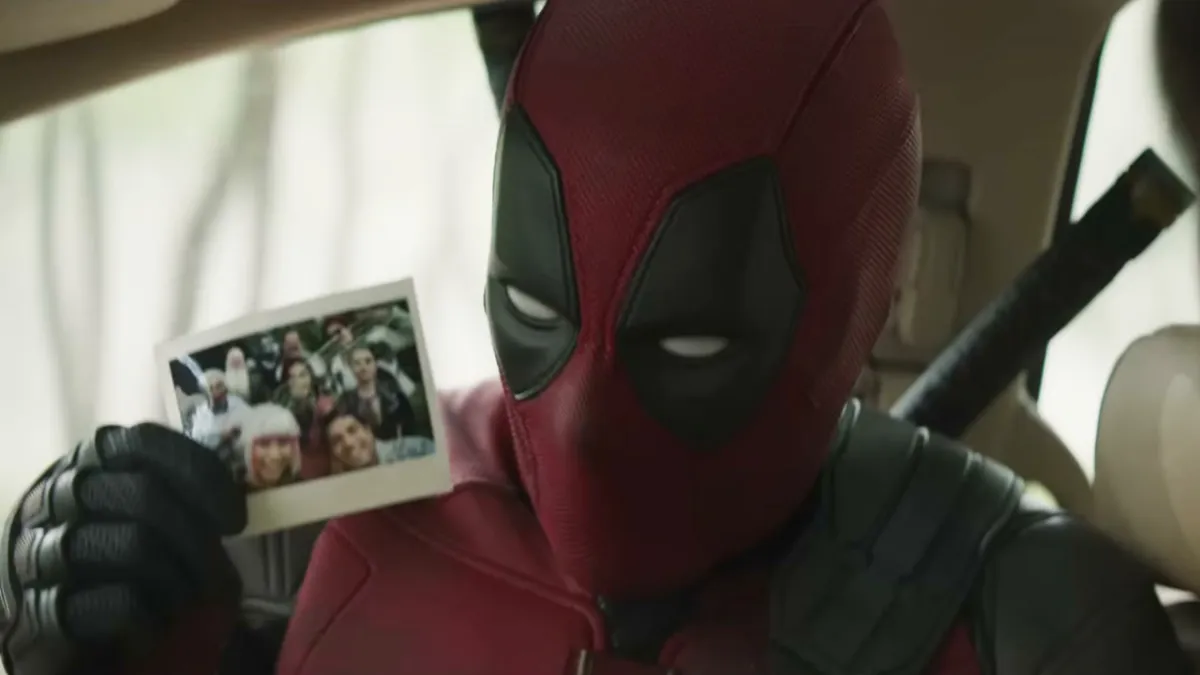This story contains major spoilers for seasons two and three of Legion.
Legion wrapped up its third and final season last week, closing the book on one of the most unique superhero projects of the past decade.
There’s a lot to unpack about the show, from the way that it riffed on X-Men tropes and iconography to its treatment of mental illness. However, one of the most noteworthy aspects of Legion is its commentary on and engagement with the superhero genre.
The basic plot of Legion is boilerplate stuff. David Haller (Dan Stevens), the son of X-Men founder Charles Xavier (Harry Lloyd), has struggled with mental illness his entire life. He quickly discovers that he is a mutant, and not just any mutant, but one of the most powerful mutants on the planet. David can manipulate reality, warping the world and the perspectives of others to suit his whims and predilections.
The first two seasons of Legion follow standard superhero plotting, albeit with the sort of heightened sensibility expected from showrunner Noah Hawley (Fargo) and a cavalcade of impressive directors including Hiro Murai (Atlanta), Ana Lily Amirpour (A Girl Walks Home Alone at Night and The Bad Batch), Andrew Stanton (Finding Nemo and Wall-E) and Daniel Kwan (Swiss Army Man). The show begins with a classic X-Men narrative where mutants are hated and feared and David and his allies must evade the machinations of a sinister government organization, Division 3. The second season of Legion is a standard superheroes-saving-the-world story, drawing on the temporal machinations that define so many classic X-Men plots.
However, Legion subverts the good-against-evil story by having David use his powers in increasingly morally questionable ways as he pursues the the villainous Shadow King, Amahl Farouk. After defeating his enemy in the season two finale, David wipes the memory of his lover, Syd Barrett (Rachel Keller), and then has sex with her. While the series often employs abstract imagery and flowery metaphor, there is no ambiguity to what David did. “You drugged me and had sex with me,” Syd says.
The power fantasy is central to the superhero narrative. It would be fun to be able to leap buildings in a single bound or shoot lasers from your eyes. Legion is a show that is consciously and overtly anxious about the application of these fantasies, as well as who gets to play them out.

The third season of Legion finds David desperately trying to undo his past mistakes. He has found a time traveler named Switch and hopes to use her abilities to go back and do it all over again, a plot that parallels the summer’s biggest superhero story, Avengers: Endgame. Both Legion and Endgame acknowledged the risks of time travel. In Legion, David threatens to undo the fabric of reality itself. In Endgame, the Avengers run the risk of essentially condemning no fewer than four other timelines to death and destruction if their plan fails.
Endgame is a very typical superhero narrative. Their plan doesn’t fail. The timelines aren’t doomed. The damage that Thanos has caused is reversed, with the long-term cultural and social traumas that his plot would have caused playfully glossed over in Spider-Man: Far From Home. More to the point, Endgame offers a simple moral thesis: The heroes failed in Infinity War because they refused to use their powers to the best of their abilities. Had the team destroyed Vision immediately, Thanos would never have taken the Mind Stone. Had Star-Lord killed Gamora without hesitation, Thanos would never have recovered the Soul Stone. This inaction effectively dooms half the universe.
The heroes in Endgame are defined by their embrace of power rather than by their inaction. The most notable example is Bruce Banner’s decision to be the Hulk all the time, keeping all of that power at his disposal. The heroes also claim the power of godhood that Thanos had coveted for himself and use it for their own ends. The Ancient One points out the selfishness of the Avengers’ plan to steal Infinity Stones from other timelines, but they don’t care as it will allow them to undo their mistake.

Legion is much more anxious about this use of power. When David tells Syd his plan to rewrite history, she tells him that such a change would only be self-serving, a way to avoid taking responsibility for his actions. “You would still be the man who tricked me, who took advantage of me,” she says. “I just wouldn’t know.” David is not interested in redemption or reconciliation. He just wants the power to assuage his own guilt. David brutally murders any friends and colleagues who get in his way, justifying it by insisting that his plan to rewrite history means that “no one who dies is really dead.”
Legion has a decidedly ‘60s aesthetic. The third season casts David as a cult leader in the style of Charles Manson, controlling his followers with psychic psychedelics while agents of Division 3 fly around in a zebra-striped blue and white zeppelin that evokes the Beatles’ flying yellow submarine. The aesthetic channels the ‘60s origins of many of Marvel Comics’ best known superheroes, including the X-Men, and suggests an exploration of how that era shaped the genre.
Stan Lee and Steve Ditko articulated their moral philosophy when introducing the amazing Spider-Man in the pages of Amazing Fantasy #15 in 1962 with the oft-misquoted line, “with great power there must also come — great responsibility!” Marvel Comics writer Greg Pak described that idea as “one of the greatest single moral injunctions in all of American pop culture.” However, this principle seems to have fallen by the wayside. Spider-Man: Far From Home argues that a teenager should have access to an army of drones that kill on command even if he has no idea how to properly use them. In the Marvel Cinematic Universe, power often feels like an end unto itself.

Legion eschews this trend. It frequently sets up epic battles and confrontations and then resolves them through dance-off, rap battle, or song. When the show does indulge in superhero spectacle, like David’s attack on Division 3, it is often presented as grotesque or unsettling, something more akin to what a villain like Magneto would do.
Confronting Charles Xavier on the Astral Plane, Amahl Farouk expresses his disillusionment with the expectations of a superpowered showdown. “We can make anything we fancy in this arena of infinite promise, and this is what we come up with? Weapons? War? Surely we have more imagination than that.” It seems like a critique of the genre itself. Superhero stories offer a vast and unlimited canvas, but too often they come down to characters pummeling one another.
David’s battle with the Shadow King is an illustration of that old Nietzschean cliché about those who fight monsters. It’s implied that Amahl Farouk only became the Shadow King by defeating his own monster, showing how heroes and villains are locked in a perpetual cycle of violence and abuse. Legion ultimately offers a radical counterpoint to the power fantasy of the standard superhero narrative: radical empathy.

Thrown back in time to David’s childhood, Syd refuses to even consider killing David to prevent all the suffering that he will cause. Instead, she simply warns David’s mother, “You have to love him. OK? Like his life depends on it. Like the world will end if you don’t.” In contrast David shows a complete lack of compassion for other people, including Switch, who almost kills herself to bring him back in time. “She’s… no one,” David tells his father. “She’s a means of getting here. Of reaching you.” Charles chides his son, “Everyone is someone, David.”
As modern superhero blockbusters focus on the concentration of power in the hands of individuals, there is something to be said for Legion’s discomfort with the casual application of such power. Live-action superhero cinema has often framed these power fantasies in overtly militaristic terms. Christopher Nolan’s Dark Knight trilogy explicitly positioned its hero as an extension of the military industrial complex, while the climaxes of both Infinity War and Endgame find Captain America commanding a literal army of superheroes.
Legion is playing with these genre conventions at a time when modern culture is increasingly charged and polarized, and when consensus reality seems to be eroding. David has enough power to rewrite reality itself, making him a living, breathing Infinity Gauntlet. He is the superhero power fantasy pushed past its logical extreme, a young man who never has to listen to anybody telling him “no.” But all of that power means nothing without compassion for others, a point made by juxtaposing David’s brutal slaughter of Division 3 with a rendition of Elvis Costello’s “(What’s So Funny ’Bout) Peace, Love and Understanding?” Empathy is the most powerful thing in the world of Legion, and that’s what made the show truly radical.





